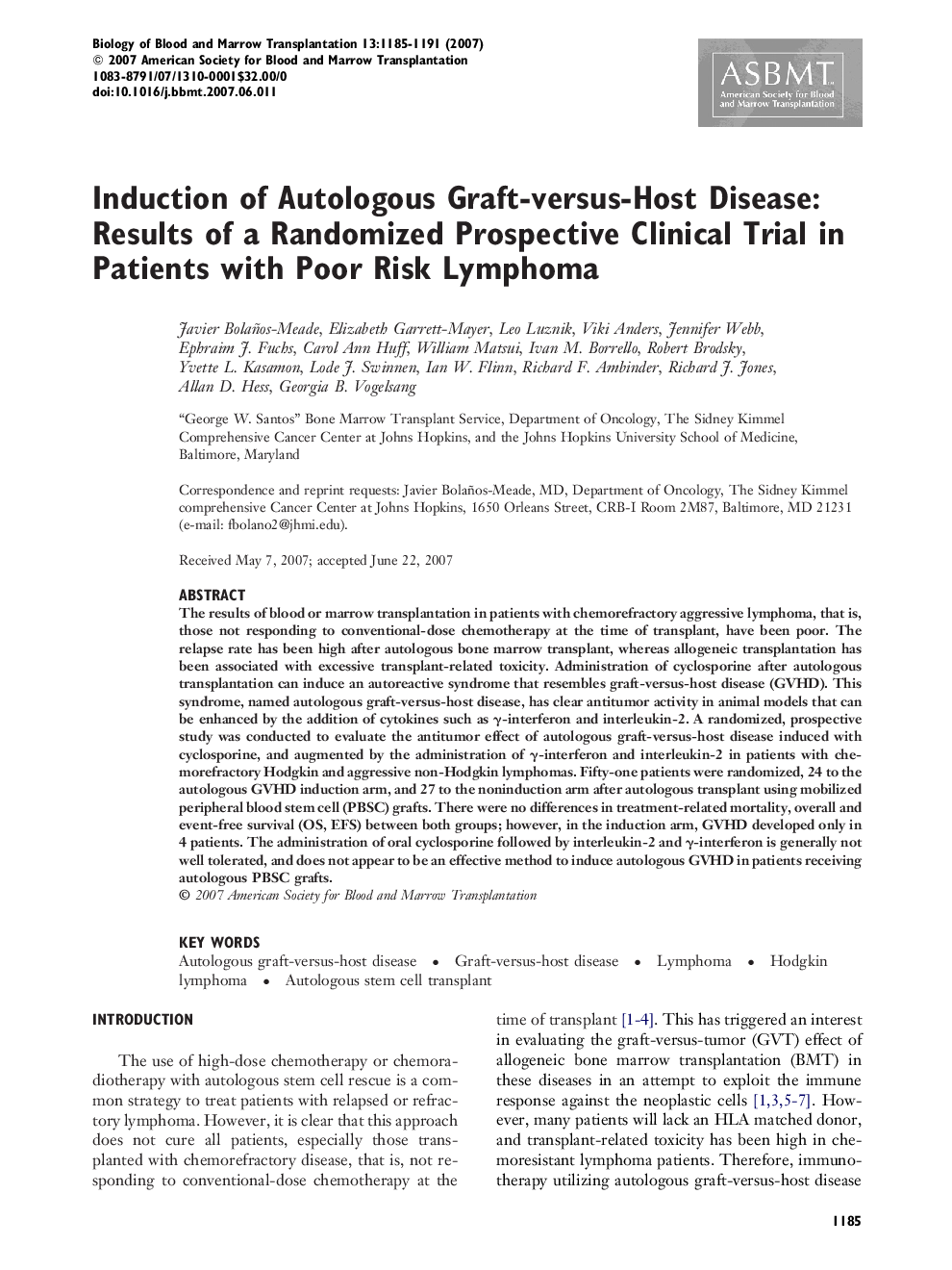| Article ID | Journal | Published Year | Pages | File Type |
|---|---|---|---|---|
| 2104960 | Biology of Blood and Marrow Transplantation | 2007 | 7 Pages |
The results of blood or marrow transplantation in patients with chemorefractory aggressive lymphoma, that is, those not responding to conventional-dose chemotherapy at the time of transplant, have been poor. The relapse rate has been high after autologous bone marrow transplant, whereas allogeneic transplantation has been associated with excessive transplant-related toxicity. Administration of cyclosporine after autologous transplantation can induce an autoreactive syndrome that resembles graft-versus-host disease (GVHD). This syndrome, named autologous graft-versus-host disease, has clear antitumor activity in animal models that can be enhanced by the addition of cytokines such as γ-interferon and interleukin-2. A randomized, prospective study was conducted to evaluate the antitumor effect of autologous graft-versus-host disease induced with cyclosporine, and augmented by the administration of γ-interferon and interleukin-2 in patients with chemorefractory Hodgkin and aggressive non-Hodgkin lymphomas. Fifty-one patients were randomized, 24 to the autologous GVHD induction arm, and 27 to the noninduction arm after autologous transplant using mobilized peripheral blood stem cell (PBSC) grafts. There were no differences in treatment-related mortality, overall and event-free survival (OS, EFS) between both groups; however, in the induction arm, GVHD developed only in 4 patients. The administration of oral cyclosporine followed by interleukin-2 and γ-interferon is generally not well tolerated, and does not appear to be an effective method to induce autologous GVHD in patients receiving autologous PBSC grafts.
